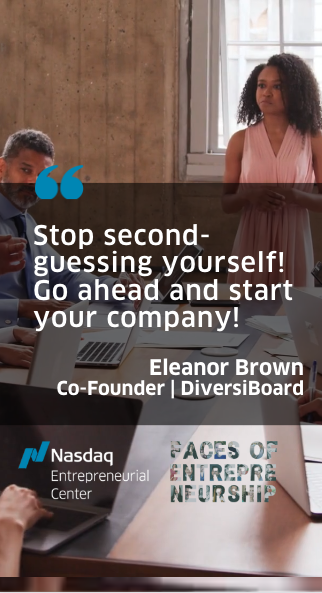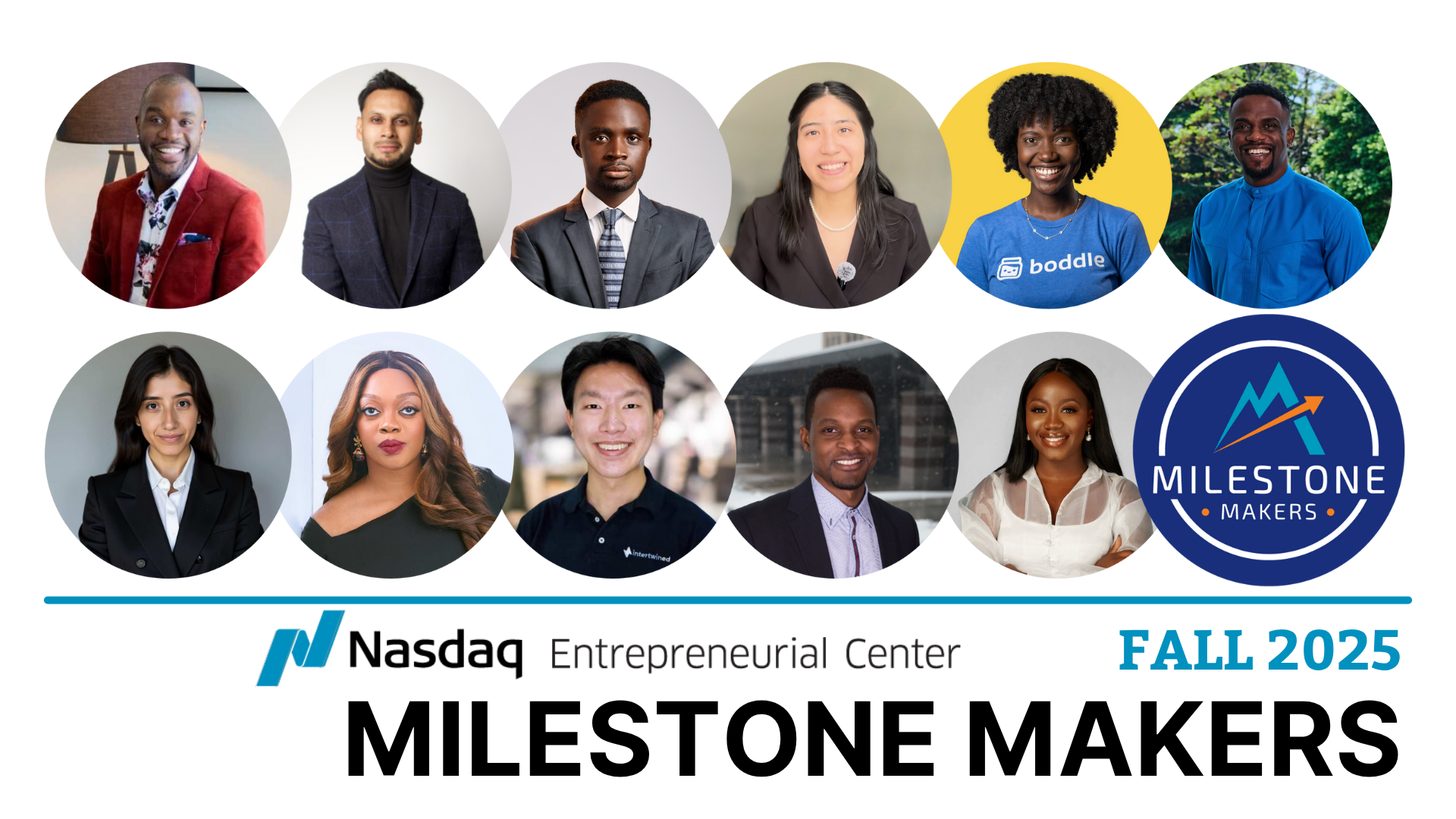Eleanor Brown is a Co-Founder of DiversiBoard, a platform that enables companies to source diverse technical talent from both her native Caribbean and West Africa. DiversiBoard is a Techstars (powered by JP Morgan) company and tackles a major pain point for aspiring African and Caribbean professionals: the lengthy process to apply to and obtain visas for universities abroad by automating application and visa processes. She is also a Professor of Law at Fordham University and an Affiliated Professor at the Rock Ethics Institute of the Pennsylvania State University, the “Big Ten” university where she was previously one of very few Black women full professors and also a member of the Dean’s Suite at the Law School. Brown was previously a chair of the Jamaica Trade Board. Brown was appointed by Andrew Holness, the Prime Minister of Jamaica, to the CARICOM Commission. She has served on the boards of several publicly traded Caribbean companies and was the youngest director of two subsidiaries of the Bank of Nova Scotia (Jamaica), one of the largest subsidiaries of the largest Canadian bank (by market capitalization). Brown was the youngest director of JPSCo, the electric utility owned by Korea Electric Power Corp., Marubeni Corp. of Japan, and the government of Jamaica. Brown holds a bachelor’s degree in molecular biology from Brown University and a master’s degree in politics from Oxford University, where she was a Rhodes Scholar. She earned her J.D. in 1999 from the Yale Law School. In June 2023, Eleanor was named a Finalist in the 50 Women to Watch for Boards. These women were chosen from over 400 talented applicants for their leadership, innovation, and commitment to excellence in their fields.
What does “entrepreneurship” mean to you?
 Eleanor Brown: As I may have mentioned, I am also a professor. I will share with you the very simple definition that I use with my students. Entrepreneurship entails taking on financial risk to set up a business in the hope of making a profit. This definition is very narrow. It does not include, for example, all sorts of other risk-takers who take risks for the greater good. I am thinking of social entrepreneurs.
Eleanor Brown: As I may have mentioned, I am also a professor. I will share with you the very simple definition that I use with my students. Entrepreneurship entails taking on financial risk to set up a business in the hope of making a profit. This definition is very narrow. It does not include, for example, all sorts of other risk-takers who take risks for the greater good. I am thinking of social entrepreneurs.
Tell us about your first experience with entrepreneurship.
EB: I am originally from Jamaica. We are surrounded by entrepreneurs in Jamaica. On every corner there is a market person. We are fundamentally entrepreneurial people. Many Jamaicans are descendants of West Africans – I have a very similar feeling when I visit West Africa. In Jamaica, we say that entrepreneurism is in our blood!
What is your company’s origin story? What is the biggest reason you started your business? What did those early days look like and teach you?
EB: As a professor, I am passionate about talent. While I was a professor at Penn State, I had the idea to start a platform that brings educational, internship, and job opportunities to people regardless of where they reside. Modern AI allows us to do this in wonderfully creative ways – thanks to our CTO and Co-Founder, Victor Kovalev, who previously ran Mobile at Yelp and has been a CTO and/or CPO for two other unicorns that became publicly traded companies. It’s about having an amazing mission for the company and ALSO having the technology to make it happen – which Victor enables us to do.
In summary – this is why we started DiversiBoard. DiversiBoard is fundamentally about bringing opportunity to people wherever they may be, enabled by amazing technology. We have started with my native Caribbean and West Africa
What do you wish you knew when you started? Is there anything you would do differently?
EB: While it is important that your business is scalable, many good ideas are not immediately scalable. If you have a good instinct, follow it. Run a pilot. In the process of running a pilot, mechanisms of scalability will often become clear.
What are your personal driving principles, and your top values?
EB: I think it should not matter where you are born. Borders are artificial. The movement of people is not. I think there are a lot of talented people who do not have access to opportunity simply because of the constraints of borders. I want to change this.
How have your personal principles and values shaped your company’s values and principles?
EB: We are radically inclusive. We assume that everyone has talent to share. Our job is to figure out how to showcase those talents more broadly.
What’s it like to work alone or with your partners?
EB: We have been very intentional about who we partner with. Intentionality helps in ensuring that you foster good partnership relationships!
What role does mentorship play in your world?
EB: I have been the beneficiary of wonderful mentors. Indeed, I think that mentorship has contributed more to my success, personally, professionally, and in business than anything else. I like to pay it forward by mentoring other entrepreneurs.
What are you reading or have read?
EB: Why Nations Fail. It is a wonderful reminder of the importance of an environment that fosters entrepreneurship in the economic development of communities and countries. I am convinced that one of its authors, Daron Acemoglu will win a Nobel Prize in Economics someday!
What advice do you have for fellow (and aspiring) entrepreneurs building and leading teams?
EB: Stop second-guessing yourself! Go ahead and start your company!
What is a problem that keeps you up at night?
EB: Getting more women, and particularly women of color on Boards. I’ve served on a lot of Boards in my native Caribbean, and I continue to be amazed at the poor representation of women on Boards in the US.
What kind of an entrepreneur do you want to be known as – as in, what do you want your legacy to be?
EB: One of radical inclusion.
Do you have someone you’d like to nominate to be profiled in our Faces of Entrepreneurship series? Please let us know by emailing media@thecenter.nasdaq.org or submitting your nomination using this form.




